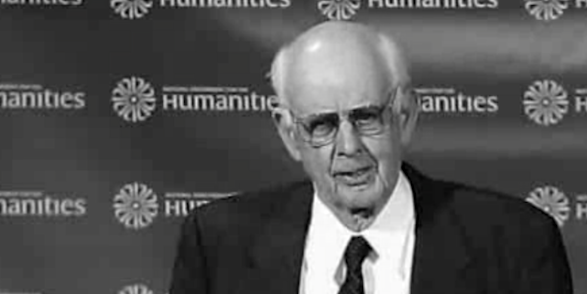 “The great mistake that we make,” says Wendell Berry, “is when we assume that the land can be abused to improve the people — or that the people can be abused to improve the land.”
“The great mistake that we make,” says Wendell Berry, “is when we assume that the land can be abused to improve the people — or that the people can be abused to improve the land.”
Berry spoke last week on the Diane Rehm show about his new collection of stories, and about his 2012 Jefferson Lecture, “It all turns on affection,” sponsored by the National Endowment for the Humanities (NEH).
From the radio interview:
I think the polarization between economy and conservation has been a tragedy. It is in fact possible to use land without destroying it. Our idea that we could maintain the integrity of nature — the integrity of the ecoshpere — by preserving so-called wilderness areas seems to me an error. If we preserve nature there, while we destroy it in (what i would call) the economic landscapes, eventually we are going to destroy it all. The task — and it is a doable and practical task … is to bring our economic life into line with the demands of the ecosphere and the local ecosystems.
From the Jefferson Lecture:
Obviously there is some risk in making affection the pivot of an argument about economy. The charge will be made that affection is an emotion, merely ‘subjective,’ and therefore that all affections are more or less equal: people may have affection for their children and their automobiles, their neighbors and their weapons. But the risk, I think, is only that affection is personal. If it is not personal, it is nothing.
Following Berry’s talk, NEH Chairman Jim Leach assured the audience:
Thank you Wendell Berry for presenting a thought-provoking perspective on the importance of love and affection in the social life of our country. But as an official of the United States government, I’m obligated to note that these views are those of the speaker and do not reflect those of the United States government or any agency thereof.
Radio podcast here. Jefferson Lecture text here. Jefferson Lecture video here.

